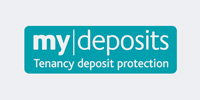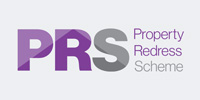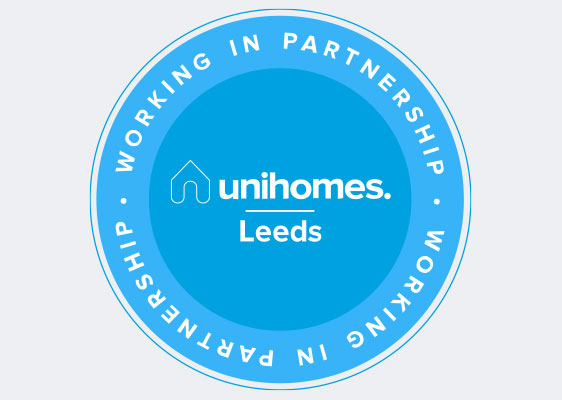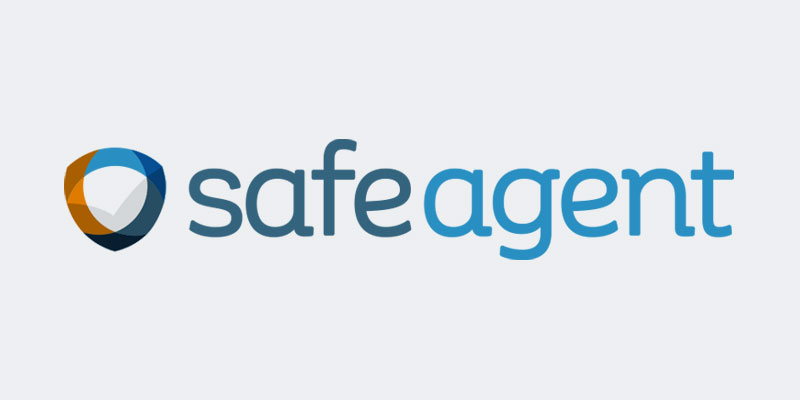Yes, you should get permission from your mortgage lender, this is also known as consent to let. This is the only way you can legally rent out your home without switching to a buy to let mortgage.
Landlord FAQs.
Any questions? .
Any questions?
We hope that if you have a question for us, we have already answered it here. If we haven't, please do contact us, we'd love to hear from you.
-
I’m thinking about renting out my property. Do I need to tell my mortgage lender?
-
Do I need to use a letting agent, or can I manage the property myself?
This is entirely your decision. If you feel you already have a good handle on all of the regulations around letting your property, and fully understand both your and the tenant’s rights, there is no reason why you can’t manage the property yourself - although it can be a risky and time consuming exercise if you don’t know what you’re doing.
Choosing a property management company such as In Lettings allows you to completely relax, knowing that you won’t have to deal with any of the more complicated or unpleasant parts of the tenancy - such as the paperwork, or dealing with rent arrears, maintenance issues or deposit disputes.
We offer a range of services such as tenant finding, let only or full property management, designed to take the stress out of the process for you.
-
How will I know how much rent to charge?
You will need to do your research and consider a few factors here including but not limited to the following:
- The size of your property/property features
- Property condition
- Local amenities and travel links
- Current market demand
-
Would it be better for my property to be furnished or unfurnished?
As with most things, there are pros and cons to furnished or non furnished properties. The tenants you aim to attract will play a big role in which way you decide to go here.
For example, families may already have a lot of their own furniture they’d like to bring with them. In contrast, young professionals may prefer a property with high quality and aesthetically pleasing furniture - and may be willing to pay more for a property which is furnished to a high standard. Students will also usually opt for a furnished property.
-
Do I need to pay tax on rental income?
You or your company must pay tax on the profit you make from renting out the property, after deductions for 'allowable expenses'. For detailed information please refer to government guidelines at https://www.gov.uk/renting-out-a-property/paying-tax.
If you, as a landlord, live overseas for more than six months a year but are letting out property in the UK, government legislation requires that your letting agent deduct basic rate tax from rental income received on your behalf. This money should then be paid to HMRC by your letting agent, unless HMRC can provide them with a letter stating that you are exempt.
-
Do I need landlord insurance?
There is no legal obligation for you to have a specialist landlord insurance policy, however most buy-to-let mortgages come with the condition that you do have one.
A specialist landlord insurance policy can be a good idea, as being a landlord involves risks that you don't have when you live in your own home. For example - if a tenant of yours gets hurt on your property, you could be facing a legal claim. Landlord insurance covers things like this.
Another example of where landlord insurance is a good idea is if a tenant is no longer able to stay in your property due to an insured event, such as a fire or flood. A landlord insurance policy can cover the rehousing cost for your tenant. It can even cover you for loss of rent whilst remedial works are being carried out on your property.
-
What if the tenant doesn’t pay the rent?
In our experience, it’s actually quite rare that this happens. We put that down to our tenant vetting process which helps to ensure that we find a high quality tenant for your property.
Tenant’s circumstances however can and do change, and sometimes this means that they might struggle to pay their rent. If this occurs, we can advise you on the best course of action. If we manage the property for you, a late rent payment will trigger a process which endeavours to recover any late or unpaid rent.
A simple reminder email or telephone call is usually all it takes to prompt a tenant to pay their rent when it is overdue, however we record all correspondence just in case things escalate.
-
What happens with my tenant’s deposit?
The deposit will be registered with the government approved deposit protection scheme My Deposits.
When a tenancy ends, we will inspect the property. Provided that everything is in order, and all contractual obligations have been fulfilled, we will instruct My Deposits to release the deposit back to the tenant.
Any deductions which need to be made will be reported to My Deposits with evidence. They will then deduct this from the tenant’s deposit before returning any remaining balance to them. The deduction will be returned to the landlord, or to the agent acting on the landlord’s behalf.
In any case, the deposit will only be released once both parties have agreed.
-
Who will look after my garden?
Generally it is up to the tenant to look after the garden. That said, if you are concerned about how the tenant looks after your garden, you are free to arrange for gardeners to visit your property and keep your garden in order. If you choose to do this, we recommend that you allow for this additional cost in the rent you charge.
We are happy to arrange for gardeners to attend your property, should you need them to.
-
Who will pay the bills and council tax?
This varies from one tenancy to the next. If you do not want to have to manage the bills for your property/properties, you can leave it to the tenants to deal with - writing clauses into their contracts to make it clear that they are responsible. This situation is more common when a property is let to a single occupant or family for six months of more.
If you’re happy to manage the bills for the property as the landlord, you can offer an all inclusive tenancy but you should charge enough rent to cover the additional costs of any bills incurred.
With tenancies for shared houses or HMOs, where tenants come and go on a regular basis, sorting out who owes what and dealing with all of the different companies involved can be a bit of a nightmare. That’s why In Lettings offer a service whereby we can manage all of the bills for your property, for one simple monthly fee. Please contact us for more information on our managed bills service.
Whichever scenario you decide to go for, it is important that you make it clear in the tenancy agreement who is responsible for paying what. It is also important to note that when a property is empty, the landlord is always responsible for paying the bills.
-
What is an EPC and do I need one as a landlord?
Yes, you need to have an in date EPC. An Energy performance certificate rates your property on how efficient it is, the rating will be between A-G with A being the most efficient.
EPCs are valid for 10 years from the date of issue - so if you have one from when you purchased your property, it’s probably worth checking to make sure it is still in date. If you have made improvements which make it more energy efficient, your EPC will no longer be correct, so you might want to have another done even if your existing one is still in date.
All rental properties must have an EPC rating of E or above. If you are found to be renting your property whilst it has a lesser rating than this, you could be fined up to £4000.
If you need an EPC for your property, we can arrange for one to be done on your behalf (please see our fees page for cost). If you are interested in improving your property’s energy efficiency rating, please get in touch, we would be happy to help.
-
Does my rented property need smoke alarms?
The law states that all rental properties must have at least one working smoke alarm. You must also have a carbon monoxide alarm in the property if it contains a solid-fuel burning appliance, such as a log burning stove or an open fireplace.
Ideally, we would recommend that you have at least one smoke alarm and one carbon monoxide alarm on each floor so residents have plenty of time to react in the event of a fire anywhere in the property. Mains operated alarms are always the preferred option as they require less maintenance and are less prone to being disabled on purpose.
-
Does my rented property need a Gas Safety Certificate?
Yes. It is your responsibility as a landlord to ensure that all gas appliances and flues are in safe working order. An inspection must be carried out by a qualified Gas Safe engineer every 12 months to test that appliances such as boilers, hobs and fires are safe to use.
Once the checks have been carried out and you have been awarded a certificate proving as such, you must provide your tenants with a copy. A copy must also be given to any new tenants moving into the property.
If you need a Gas Safety Certificate for your property, we can arrange for one to be done on your behalf (please see our fees page for cost).
-
What is an EICR and do I need one?
An EICR is an Electrical Installation Condition Report and as of July 2021 is mandatory for all rental properties.
It is an inspection of the electrical wiring in your property and is critically important, as faulty wiring can be incredibly dangerous to both your tenants and your property.
An EICR must be carried out on your property by a qualified electrician every 5 years.
If you need an EICR for your property, we can arrange for one to be done on your behalf (please see our fees page for cost).
-
What am I responsible for in terms of maintenance?
Generally speaking, as a landlord, you are responsible for for the upkeep of the fixtures, fittings and fabric of the building. That includes things such as:
- The structure and exterior of the building
- Sinks, toilets and pipework
- Water and gas pipes
- Electrical wiring
- Water tanks, boilers and radiators
You aren’t allowed to pass on any costs to your tenant which are not their responsibility.
If you require assistance maintaining your rental property/properties, please get in touch. We have a team of trusted maintenance professionals available to help.
-
What is Right to Rent?
Right to Rent is a piece of legislation which requires landlords in England to check that all tenants who occupy their properties have legal status to live in the UK.
This means that before you can rent out your property in England, you, or your letting agent must undertake passport and immigration checks prior to letting out your property.
You can keep up to date with the government’s latest guidance on Right to Rent checks on their website - https://www.gov.uk/government/publications/landlords-guide-to-right-to-rent-checks
-
What is Client Money Protection?
Client money protection (or CMP for short), is a scheme which reimburses landlords and tenants in the event that their letting agent misappropriates rent, deposits or other funds which they handle on their behalf.
Since the 1st April 2019, it is a legal requirement that all letting agents are members of a CMP scheme, so make sure that your letting agent can prove as such. In Lettings is part of the safeagent Client Money Protection scheme, you can see our certificate here.









